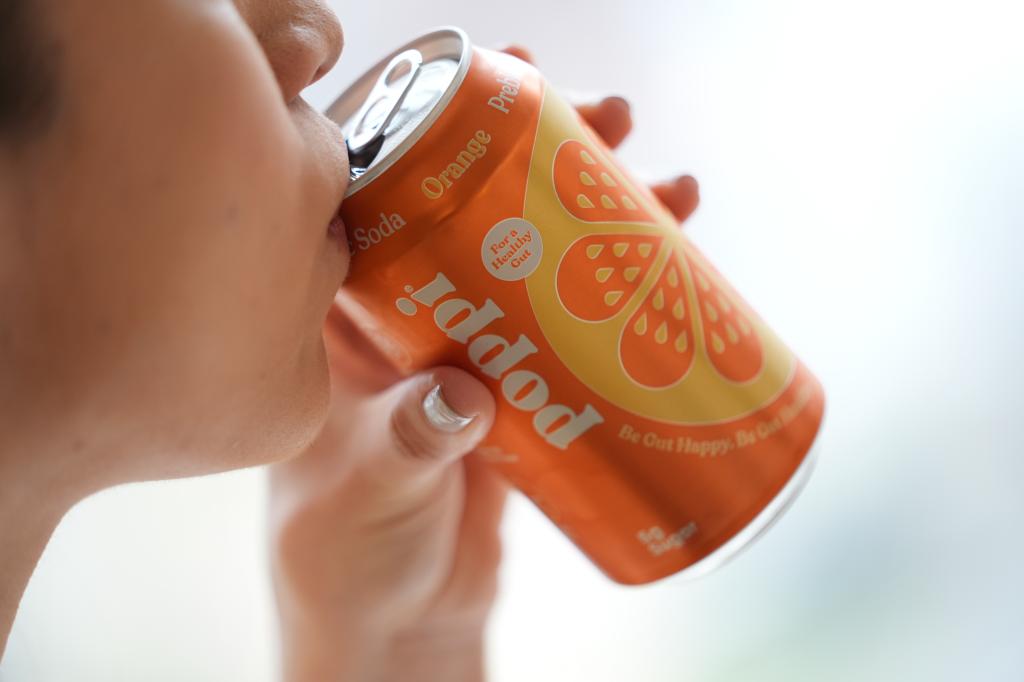In a recent class-action lawsuit filed against the parent company of the popular beverage Poppi, plaintiff Kristin Cobbs alleges that the drink’s marketing claims of being “gut healthy” are false. The lawsuit claims that the amount of prebiotic fiber in Poppi is too low to provide any meaningful gut health benefits, requiring consumers to drink more than four sodas a day to see results. Additionally, the lawsuit points out that the high sugar content in the drink would offset any potential health benefits from the prebiotic fiber.
Poppi has gained popularity in the beverage world, positioning itself as a healthy option and securing shelf-space at major retailers such as Whole Foods, Target, and Costco. However, the lawsuit argues that consumers have been misled by the company’s marketing claims regarding the gut health benefits of the soda. Plaintiff Kristin Cobbs claims she paid a substantial premium for the product based on the promise of gut health benefits, only to be left disappointed when the product did not deliver as advertised.
The lawsuit also references studies that suggest consuming too much agave inulin, the type of prebiotic fiber found in Poppi, can have adverse health effects. Concerns raised in the lawsuit include the potential negative impacts on health from excessive consumption of the product, of which consumers may not have been aware. The legal action demands a trial by jury to address the claims of false advertising and seeks to hold Poppi accountable for allegedly misleading consumers about the health benefits of their products.
As the case unfolds, Poppi has not yet publicly responded to the allegations raised in the lawsuit. However, the lawsuit represents a significant challenge for the company, potentially affecting its reputation as a healthy beverage option. With the growing demand for products that promote gut health and overall wellness, the outcome of this legal action could have broader implications for how companies market and advertise health-related claims in the future.
The lawsuit against Poppi highlights the importance of transparency and accuracy in marketing claims, particularly in the health and wellness industry. Consumers rely on product labels and advertising to make informed choices about their purchases, and misleading claims can have detrimental effects on both individual health and consumer trust. As the case moves forward, it will be interesting to see how the court addresses the allegations and whether it sets a precedent for holding companies accountable for false advertising practices.
In conclusion, the lawsuit filed against Poppi serves as a reminder for companies to be cautious when making health-related claims about their products. With consumers increasingly seeking out health-conscious options, transparency and accuracy in marketing are essential. As the legal proceedings unfold, the outcome of this case could have far-reaching implications for how companies market and advertise products in the health and wellness space. It remains to be seen how Poppi will respond to these allegations and the potential impact on its reputation and market presence.


